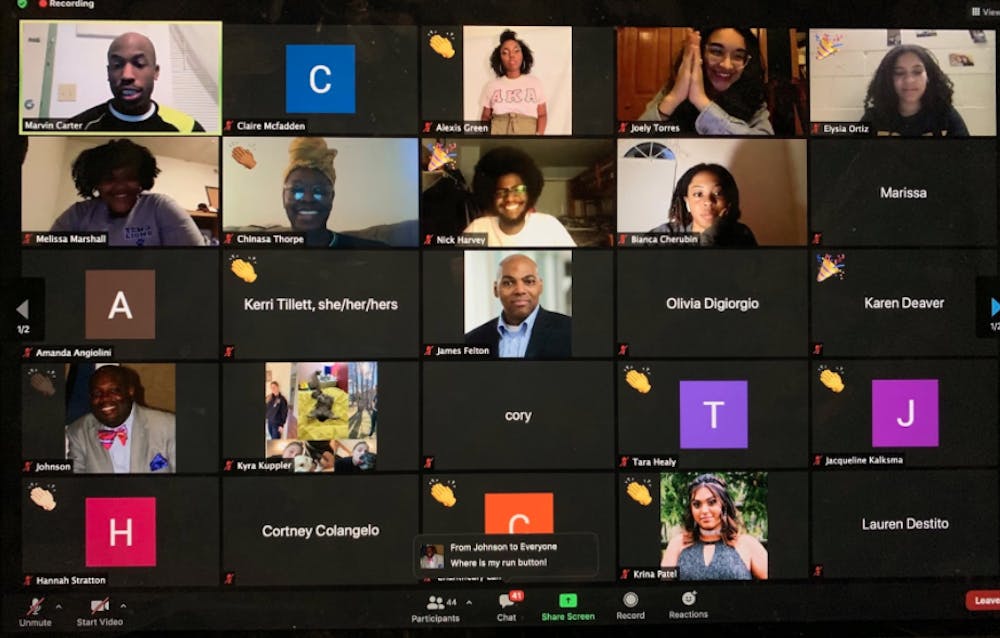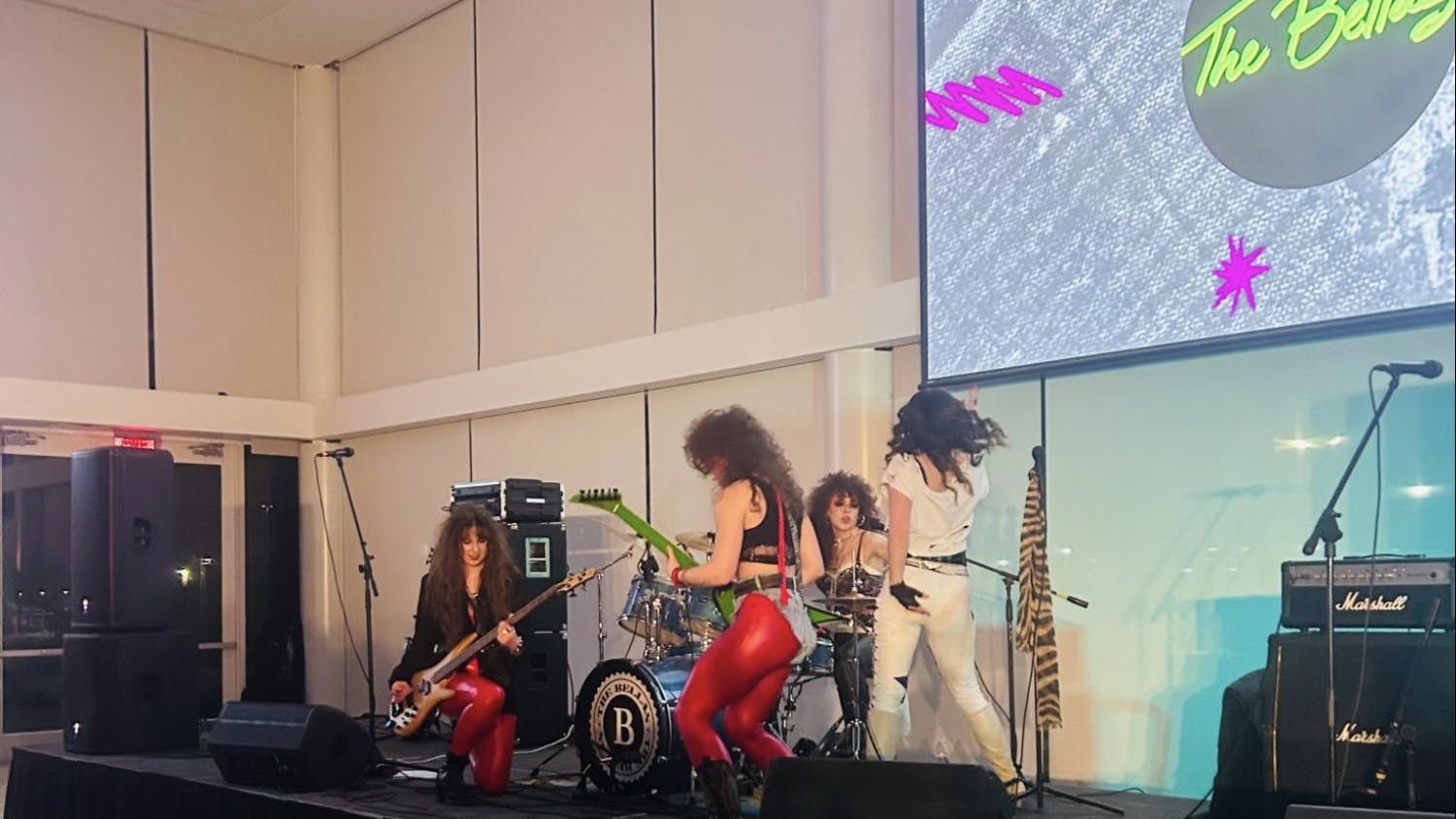By Claire McFadden
Correspondent
The College’s celebration of Black History Month continued last Thursday night with The Division of Inclusive Excellence’s Slam Poetry Festival. The virtual event featured a unique form of expression that united writing and performance, and liberated student artists to accentuate words through song, gestures and dance.
The festival kicked off with Elysia Oritz, a freshman chemistry major. She recited her poem, “We,” which focused on identity and inclusivity. Her powerful delivery called for the celebration of differences, but also the recognition of a universal human identity in her line: “we are one, we are the same.”
It’s not easy to publicly share views about politics and systemic social justice issues, but Oritz was grateful to participate in a creatively cathartic and eye-opening event.

“It really pushed me out of my personal comfort zone,” Oritz said. “And I was taken away by the other performers, and to see how they have internalized social justice issues.”
Cesar Gonzalez touched upon the importance of being culturally aware and absorbing diverse perspectives in his poem, particularly in his thought provoking line, “we are closer when we take time to think.”
Fearlessness in the face of adversity was another prevalent theme repeated throughout the night.
Nick Harvey, a sophomore psychology major, combined thunder, lightning and infinity in his poem “Them” to manifest a storm raging against those who try to place limits on others because of their skin color.
“Who are they to tell me who to be?” asked Harvey, igniting a flurry of concurring comments.
Bianca Cherubin, a sophomore psychology major, delivered a moving performance of original poetry sung to the tune of the national anthem. She ricocheted between a softly sung melody, and punctuating lines objecting against systemic issues that continue to oppress minority groups in society. A captivated audience listened as she echoed a policeman taking an official oath to honor integrity and public trust, before listing several victims of police brutality.
There was an uproarious response in the comment section by the time she sang the strikingly simple yet formidable phrase: “please let my voice be heard.”
Cherubin wants the discussion about race and injustice to continue, despite the discomfort it can uncover.
“Race is not controversial, but racism is wrong,” Cherubin said. “TCNJ can amplify black voices by listening to black voices.”
The night was hosted and put together by Marvin Carter, the College’s Associate Director of Intercultural Engagement and Inclusion, who saw value in the opportunity the festival would provide students.
“The students who participated were able to use this space as a way to invite people into their lived experiences,” Carter said. “We hope that this will lead to greater cultural engagement.”
The virtual Zoom setting did not extinguish the reactions from the audience. Those with their cameras on smiled, clapped and snapped with impressed approval at the student writing. A constant stream of pop-up heart emojis decorated the screen, and the chat comments were set ablaze after every performance.
“To be able to share my poetry with a community that is so supportive means the world to me,” Cherubin said. “You can sense how the crowd feels about the words you're speaking and it hypes you up.”
Alexis Green, a professional songwriter from North Jersey, closed the night reciting her poem “Insomnia” that intertwined the notion of Martin Luther King Jr’s “I Have a Dream” speech with her experience growing up outside an urban community.
Green shut the door to excuses and rationalizations to any form of discrimination with a reverberating bang.
“Maybe if the dream was a reality we wouldn’t have to stay woke,” Green said, her passion emphasized by her hand gestures and commanding tone. “It’s time for humanity to start acting human.”
Black History Month may be coming to a close, but Carter says that discussion and activism are a year-round priority.
“It’s important to engage in the difficult conversations around intersectionality, anti-racism and intercultural dialogue throughout the year,” he said. “Being uncomfortable around these topics can be a powerful precursor to growth.”
For future events, check out the calendar on diversity.tcnj.edu, or follow @promotediversitytcnj and @tcnj_inclusive_excellence on Instagram.







